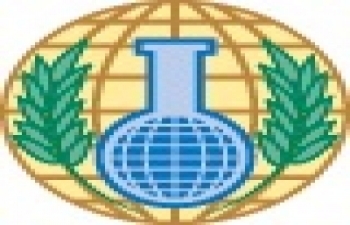Menu
- Home
- Embassy
- Bilateral Relations
- India - Netherlands Relations
- Indian Community in Netherlands
- State Visit of President of India Shri Ram Nath Kovind to the Netherlands - April 4-7, 2022
- India-the Netherlands Virtual Summit - April 9, 2021
- Visit of External Affairs Minister Dr. S. Jaishankar to the Netherlands - November 9-11, 2019
- State Visit of King and Queen of the Netherlands to India - October 14-18, 2019
- Visit of Prime Minister of the Netherlands H.E. Mr. Mark Rutte to India -May 24, 2018
- Press Statement during the visit of Prime Minister of Netherlands H.E. Mark Rutte to India (May 24, 2018)
- India-Netherlands Joint Statement during visit of Prime Minister of Netherlands H.E. Mark Rutte to India (May 24, 2018)
- List of MOUs/Agreements/Initiatives launched during the visit of the Prime Minister of Netherlands to India (May 24, 2018)
- Visit of Prime Minister of India H.E. Mr. Narendra Modi to the Netherlands - June 27, 2017
- Visit of Prime Minister of the Netherlands H.E. Mr. Mark Rutte to India - June 5, 2015
- India-the Netherlands Foreign Office Consultations - November 10, 2021
- India-the Netherlands Foreign Office Consultations - April 11, 2019
- Consular
- About VFS Global, The Sole Authorized Service Provider
- Visa Services
- Visa Fee Chart
- Refund Policy of the Mission for Visa
- OCI Card
- Tracking of OCI Application
- Passport Services
- Tracking of Passport Application
- Consular Services
- Consular Camp
- Attestation of Documents
- Affidavit for changes pertaining to passport-services
- Birth certificate based on Indian Passport
- Collection of Indian Driving License
- Death Registration/ NOC/ Attestation of Death Certificate
- Driving license Authentication
- Emergency Certificate
- International Driving Permit
- Life Certificate
- NOC for Minor
- NRI Certificate
- Police Clearance Certificate (PCC)
- Power of Attorney
- Renunciation /Surrendering of Indian Citizenship
- Forms & Other Consular Information
- Tourist Help Line
- Registration of Indian Nationals
- Registration of Indian Students in Netherlands
- Indian Community Welfare Fund (ICWF)
- Advisory On Satelite Phones
- Open House to address complaints/ grievances related to Consular services
- FAQ - Renunciation/Surrendering of Indian Citizenship
- FAQ on Marital disputes involving NRI and PIO spouses
- Economic & Commerce
- Bilateral trade and investment
- Commercial Representative
- Doing Business in India
- Council for Leather Exports
- Indian States and Union Territories
- List of State/UT Investment Promotion Agencies
- Sector wise
- Ease of doing business in India
- Ministry of Commerce and Industry
- Association for the promotion of trade
- National Association of Software & Service Companies
- India Brand Equity Foundation (IBEF)
- Confederation of Indian Industry (CII)
- India Trade Promotion Organization (ITPO)
- Associated Chambers of Commerce and Industries of India (ASSOCHAM)
- Federation of Indian Chambers of Commerce and Industry (FICCI)
- Federation of Indian Export Organisation (FIEO)
- Intellectual Property Rights (IPR) Protection in India
- Forthcoming events
- Economic Diplomacy Division
- Doing business in Netherlands
- Tenders
- Economic publications and presentations
- Important and useful links
- India Economic Newsletter
- Advisory on trade dispute
- Invest India
- Diaspora
- Gandhi Centre
- Tourism
- Media
- Events




















